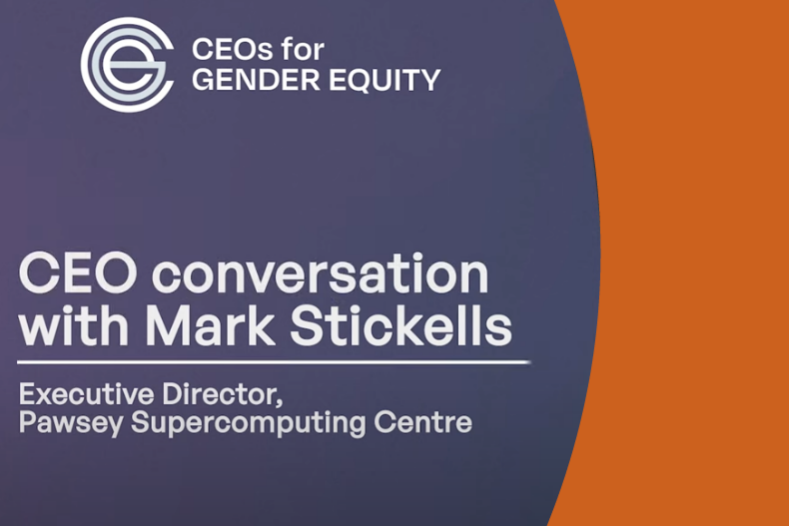How the Pawsey Supercomputing Research Centre is taking action on gender equity.
Executive Director (and Women in HPC Australia and New Zealand member!) Mark Stickells of the Pawsey Supercomputing Research Centre noticed in 2018 that there were more men named Mark working at the centre then there were women in the whole of Pawsey – and this was a light bulb moment that something needed to change. In his talk with CEOs for Gender Equity he outlines the three elements he sees as key to building up gender parity and creating an inclusive culture.
“Without a diverse and inclusive workforce, our technological potential remains untapped.” — Mark Stickells, Pawsey
Key to the business case for gender equity investment for Pawsey is to strengthen their organisation culture and environment for inclusivity, directly engage in initiatives specifically targeted for improving gender equity, and creating a cycle of feedback in order to celebrate areas of success and identify further areas to improve. While this may seem like a tall order to fill, Mark and the team at Pawsey started simply by directly addressing the gender imbalance within their organisation as well as within supercomputing.
“By calling out the issue I committed myself and our organisation to making a change,” Mark says in his interview. It was then that the real work began. Through a rigorous assessment of recruiting practices, to how leadership teams come together, to creating a committee specifically for diversity and inclusion, Pawsey is taking the steps needed to change the face of HPC for the better.
“As a leader, I take responsibility for setting the right tone and leading by example,” Mark notes, “So this is more than just an organisation change, this is also a personal journey.” Mark noted that while it’s good to see improving metrics in diversity, improving the culture of Pawsey and HPC comes with the very unpredictable human element. This has resulted in the organisation looking at situations that go beyond standard workplace interactions – diving into hierarchical concepts and even getting into issues that might seem trivial – such as tidying up the departmental kitchen.
Through it all Mark and the team has realised the importance of valuing this journey and understanding that in order to continue to improve they need to talk more openly about their experiences. “We’ve done a great job internally but now we realise that we have a larger responsibility to our community. By being public advocates for change we can inspire others and contribute to a more equitable society.”
 You can catch the full interview at CEOS for Gender Equity. We are very proud of Mark and WHPC Chapter for Australia and New Zealand in taking an active role in championing positive change in our field.
You can catch the full interview at CEOS for Gender Equity. We are very proud of Mark and WHPC Chapter for Australia and New Zealand in taking an active role in championing positive change in our field.

